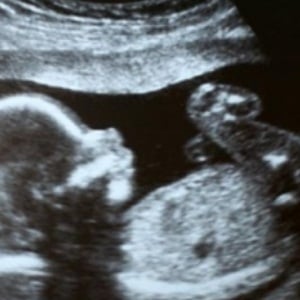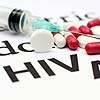
An HIV antibody test (ELISA or rapid test) may be used as an initial test in a young child. A negative antibody test result excludes HIV infection.
However, a positive antibody test result does not necessarily mean that the child is infected with HIV. This is because antibodies from the mother are found in the child’s blood for as long as 18 months after birth.
Prior to 18 months, it is impossible to ascertain if the antibodies in the baby’s blood belongs to the baby or to the mother.
Maternal HIV antibodies passed on to foetus
In HIV infected women, the maternal HIV antibodies are passively transmitted across the placenta to the unborn baby during pregnancy. If the mother is HIV antibody positive, the baby will always test HIV antibody positive at birth and will continue to test positive until the mother's antibodies gradually disappear from the child’s blood.
The mother’s antibodies usually disappear from the child’s blood by 11 months after birth, but can take as long as 18 months to disappear.
So, while every child born to an HIV positive mother will test HIV antibody positive, not every child born to an HIV positive mother is infected with HIV.
If no action is taken, one in every three children born to an HIV positive mother will be infected with HIV. A much lower number of children will be infected if the mother takes anti-HIV drugs during pregnancy or delivery.
A test that directly detects the virus itself must be used to identify a child infected with HIV.
It is possible to establish the HIV status of the baby within approximately 30 days after birth with the HIV p24 antigen and the HIV PCR tests.
The PCR and the p24 tests
The PCR test is very accurate and the best test to diagnose HIV infection in babies.
The p24 test is less sensitive than the PCR test and will fail to detect the virus in some children who are infected.
In many places, the PCR test and even the p24 test are not available. Where this is the case, and it is known that the mother is HIV positive or the child has tested HIV antibody positive, it is necessary to wait until the child is 18 months old to know whether the child is infected or not.
The p24 antigen and the PCR tests are too expensive and sophisticated for general use, but they are often used for abandoned children who are up for adoption, or for children requiring major surgery.
A child who tests HIV antibody negative at the age of 18 months is not infected with HIV; a child who tests HIV antibody positive at this age is infected. The mother’s antibodies have disappeared from the child’s blood by the age of 18 months, so if HIV antibody is detected it means that the child is making antibody in response to HIV infection.
After the age of 18 months, children are tested for HIV infection in the same way adults are.




 Publications
Publications
 Partners
Partners















